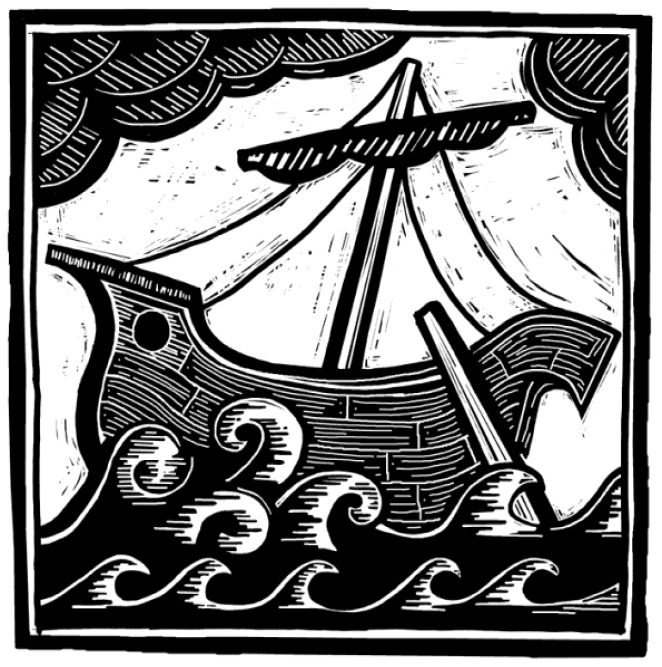
One week of First Century working conditions (no hot showers for instance, and a 5 minute walk to the nearest toilet) here in Volos, Greece on the “Aldebaran,” the boat which is to take us on the routes of Paul. This transition from “Aldebaran” to “SailingActs” is full of surprises (finding arcane instruction manuals for obsolete equipment), steep learning curve (Captain Steve, the previous owner of the boat goes over the maze of dangling wires, mislabeled switches, and non-functional buttons, telling me in Greek/English exactly how to make things work; “don’t push this button first,” he says, “or the whole thing will go ‘poof’”. I frantically jot down what I think he’s advising), and sweat.
Yesterday, May 12, Michael Hostettler who directs the Nazareth Village project in Israel, arrived at the boat to give me a hand for several days. What a boost! Today, May 13 we worked with scrub brushes and removed at least three years of collected grim. Slowly, a boat emerged under the suds onto which I could board without being afraid someone would see me and ask “you actually paid money for that boat?”
The time on the waterfront, getting ready for the voyage, makes me think about the many days the Apostle Paul hung out at the docks of some Greece city, trying to find a ship that would take him to his next destination. Paul never complains about this. While this is not mentioned in the book of Acts, he probably spent weeks on waterfronts, waiting, observing, maybe even helping scrub the deck of some ship to pass the time, or pay for the fare. Knowing Paul, he would have talked to the sailors from all over the Roman Empire. Maybe he talked to some of them about Jesus. Maybe some believed but sailors are too transient, have too many distractions in port, for them to form churches. Sailors on ships take Paul to where he is going, and others, rooted in the cities, believe and form the little churches mentioned in Acts.
